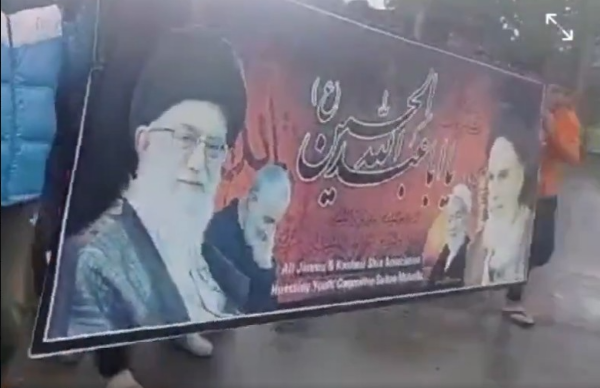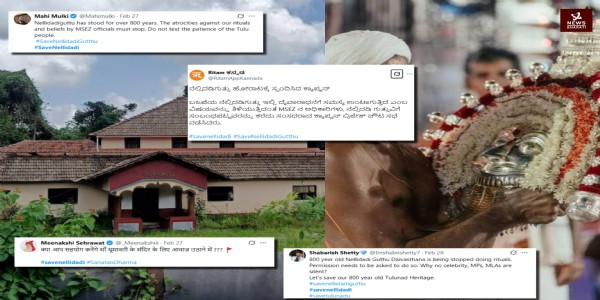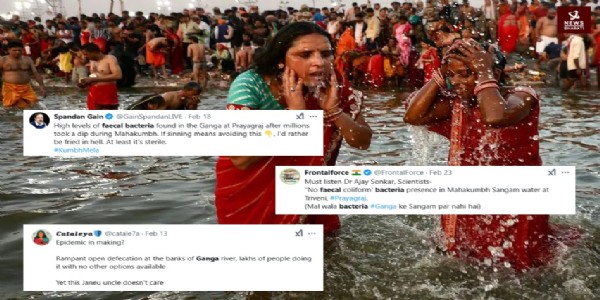Protests erupt in Kashmir over textbook calling Iran's Ayatollah Khomeini among 'world's most evil people'
Total Views | 1267
Srinagar, May 4: In a shocking development, the Kashmir valley witnessed a wave of protests and tensions after a Class 6 textbook mentioned politician and founder of the Islamic Republic of Iran, Ayatollah Ruhollah Musavi Khomeini among the “most evil people of the world”. This controversial depiction sparked outrage and condemnation from the Shia Muslims in Kashmir.

Khomeini led the country to Islamic revolution in 1979 and became the first supreme leader. He held the position until he passed away in 1989.
In That’s Right – 6, a sixth standard textbook of general knowledge and current affairs, Q-connect Books, a product of Acuber Books International had included Ayatollah Khomeini in the list of one of the “most evil” individuals in history. Khomeini, also known as Rahbar (guide) among some Shia Muslims, was listed alongside North Korean leader Kim II Sung, Khagan of the Mongol Empire Genghis Khan, and Japanese Emperor Hirohito.
We strongly condemn the unjust inclusion of Ayatollah Imam Khomeini RA in the 'most evil men in history' list by QConnect books. This reckless characterization not only disregards historical accuracy but also perpetuates harmful stereotypes. pic.twitter.com/mPko7F9VAk
— All J&K Shia Association (@AJKSA_) April 27, 2024
The chapter titled “The Most Evil Person of the World” features Khomeini stating, “He was the religious leader of Iran from 1979 to 1989. But during his reign, he did many evil deeds. He used to kill people who didn’t believe in “Allah”. People had to face brutality even if they listened to music. He was the culprit behind the Iranian revolution and also the Iran-Iraq war making him responsible for the deaths of millions of people.”
The Shia groups across the valley took to the streets to protest the disrespectful portrayal of Ayatollah Khomeini. They condemned the publisher’s actions, demanding the cancellation of the publisher’s license and taking down the text about the Iranian leader.
Publisher apologise
The publisher has apologised for the "inaccurate and offensive" mistake and promised to take the book off the market.
“Labelling him [Khomeini] among the ‘most evil men in history’ is not only inaccurate but also deeply offensive to many individuals and communities. We acknowledge the gravity of our mistake and recognise that such mischaracterisation not only undermines truth and justice but also perpetuates harmful stereotypes,” the publisher said in a statement.
The statement said that the book was not aimed at “[spreading] misinformation or [contributing] to the propagation of harmful narratives”.
Protests rock Kashmir over textbook calling Ayatollah Khomeini ‘evil’
— Kreately.in (@KreatelyMedia) May 4, 2024
The publisher of book apologised and removed the content from the book pic.twitter.com/KTFrUyV5og
“We are taking immediate steps to rectify the situation. We are committed to reviewing and revising our content to ensure accuracy, fairness, and sensitivity in our representations. Additionally, we will be issuing a formal correction and apology in our upcoming publications and online platforms,” it said.
Bharati Web







